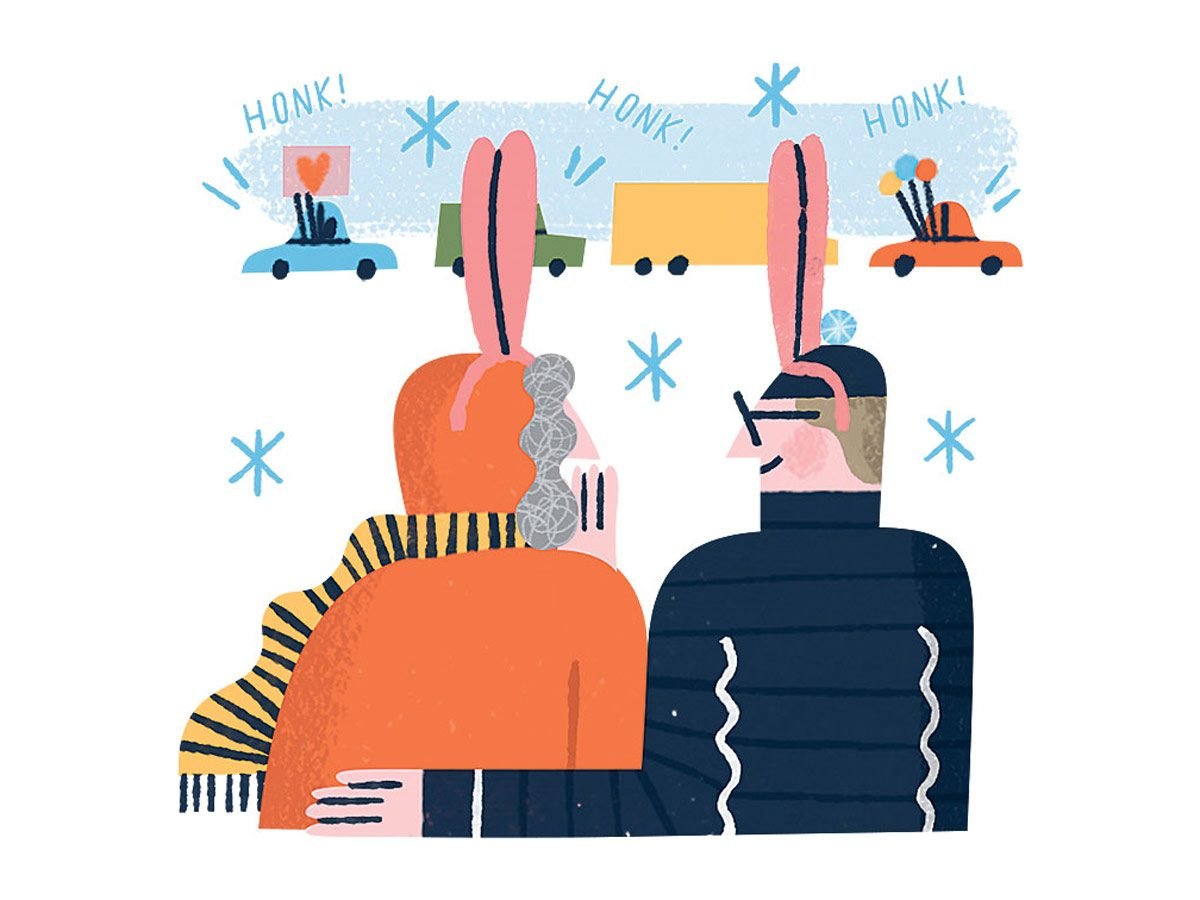
Best parade
When nine-time cancer survivor Dionne Warner of Regina received the news from her doctor that the tumours throughout her body had shrunk, she knew it was nothing short of a miracle. She and her husband, Graham, wanted to celebrate, but there was only one problem: the couple was stuck at home quarantining.
On Easter Sunday, Graham convinced Dionne to join him on a walk despite the frigid weather. Sure, she said, but only if they both wore bunny ears (he conceded). As they made their way down their driveway, she wondered why her neighbours’ houses were decked out for a party. Then she spotted the procession of 55 vehicles, including two semis. Graham had organized a surprise parade in her honour. Dionne, shocked and overjoyed, watched as her neighbours drove past, shouting congratulations and honking their horns. “I couldn’t stop crying,” she says. “It was beautiful.”
The nicest part, she and Graham add, is that their east-end neighbourhood has now transformed into a tight-knit community, with everyone helping each other pull through the pandemic. “We’re communicating now,” Graham says, “like we never have before.”

Best flower show
The first week of April, as many Canadians prepared to spend Easter weekend without relatives or friends, some residents of Hamilton and the Niagara Peninsula opened their doors to find a welcome surprise: pots of begonias, hydrangea and chrysanthemums. William Ravensbergen, the general manager of a family-run greenhouse in Smithville, Ont., teamed up with an anonymous donor to supply the plants, then recruited volunteers from three churches to distribute the 30,000 flowers. His business, like many others, was curtailed, and he didn’t want to see his blooms go to waste. Instead, they provided some much-needed colour in a dark time.
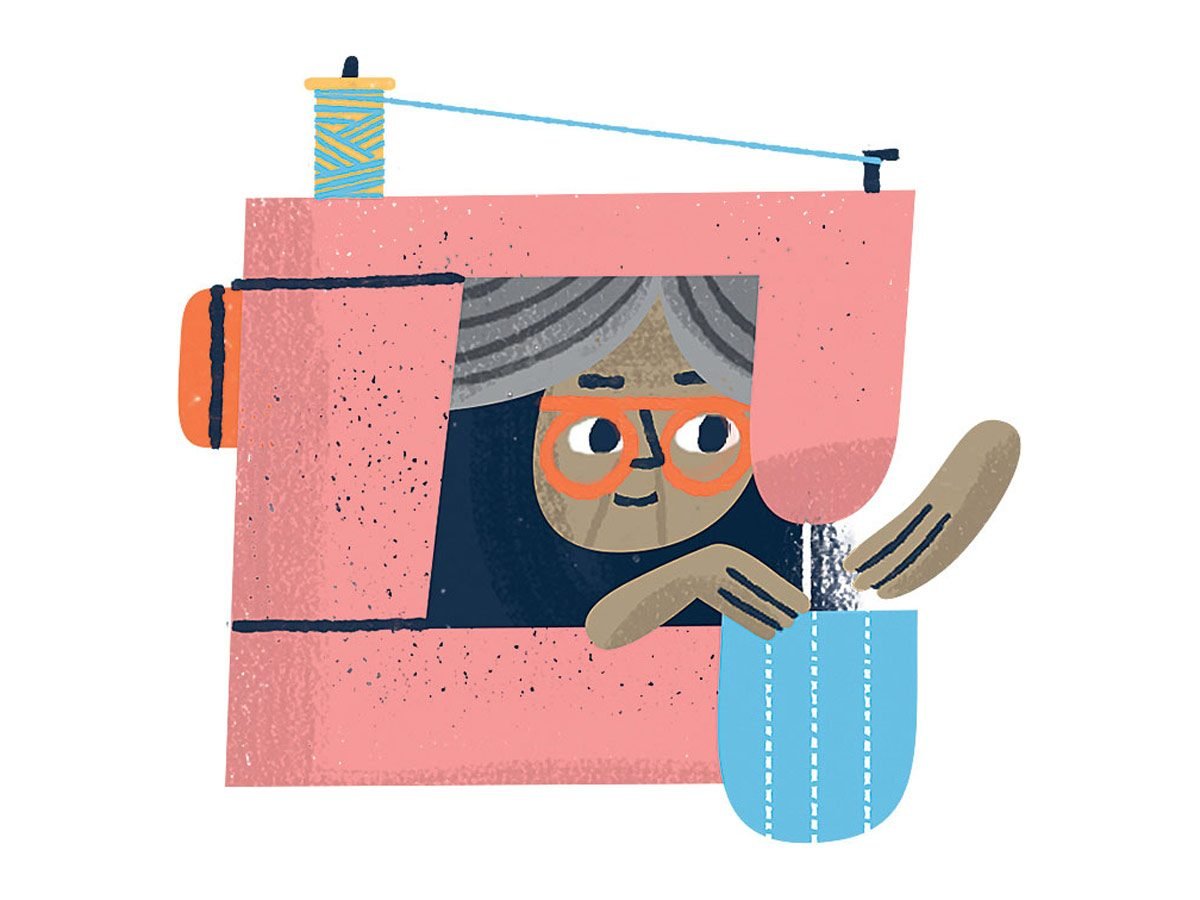
Best mask makers
As grim reports of face mask shortages dominated the headlines, Lee-Anne Moore-Thibert, an avid sewer and managing partner of a paralegal firm in Oshawa, was inspired to help. She created a Facebook group called Durham Region Sews and added 12 friends, calling on them to help her sew masks for hospitals, care homes and other front-line businesses in need. “These masks aren’t medical-grade. They were meant to be a last resort,” says Moore-Thibert. “But soon public health centres were asking for them. People went from saying, ‘This is a terrible idea,’ to, ‘Help, we’re desperate for these masks.’”
Within 24 hours, the group had 300 members. Six weeks later, as word of mouth spread, Moore-Thibert was overseeing 37 teams across nine provinces and over 8,000 volunteers. She renamed her group Canada Sews. On one record-breaking day in mid-April, they delivered 4,000 masks around the country, and Moore-Thibert broke down in tears.
“I was overwhelmed by the sheer scale of it,” she says. “It’s unbelievable how much we’ve been able to accomplish because so many people stepped up so quickly.” By May 21, they had made more than 100,000 masks and had another 55,000 requests waiting. Moore-Thibert has no doubt the group will make it happen. “When I launched my original group, I joked to my husband that I was setting a goal of making 50,000 masks,” says Moore-Thibert. “We’ve long surpassed that, and we have no plans to slow down.”
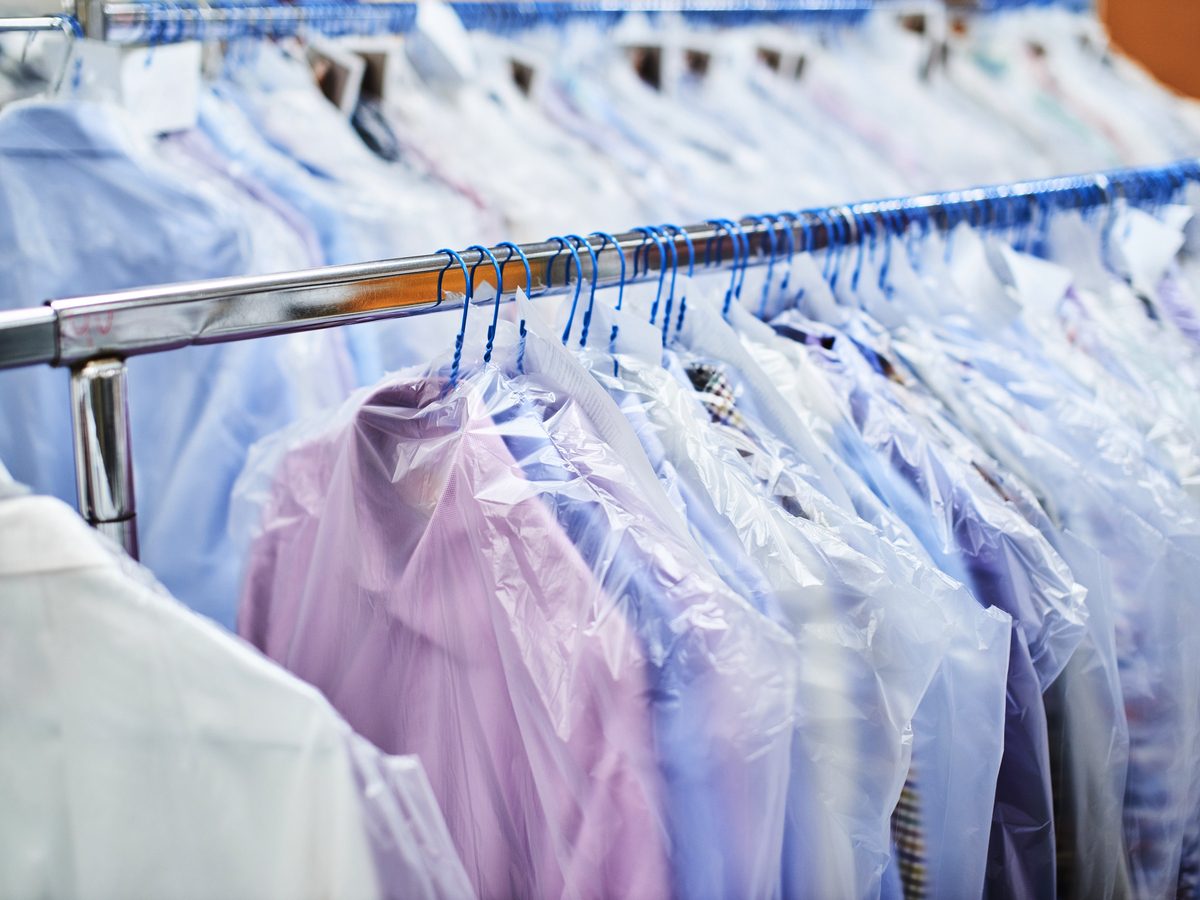
Best clean streak
Imran Rajpoot, the Calgary owner of Dolphin Cleaners, knows how time-consuming laundry can be, and he didn’t want front-line workers spending their precious downtime sanitizing their clothes. In April, he decided to offer free laundry services to health care and emergency services workers. Within the first few weeks, he’d already helped 300 front-line staff. “There is a time and a place for everything,” Rajpoot told the CBC. “It’s not really a time to make profit; it’s a time to serve humanity.”
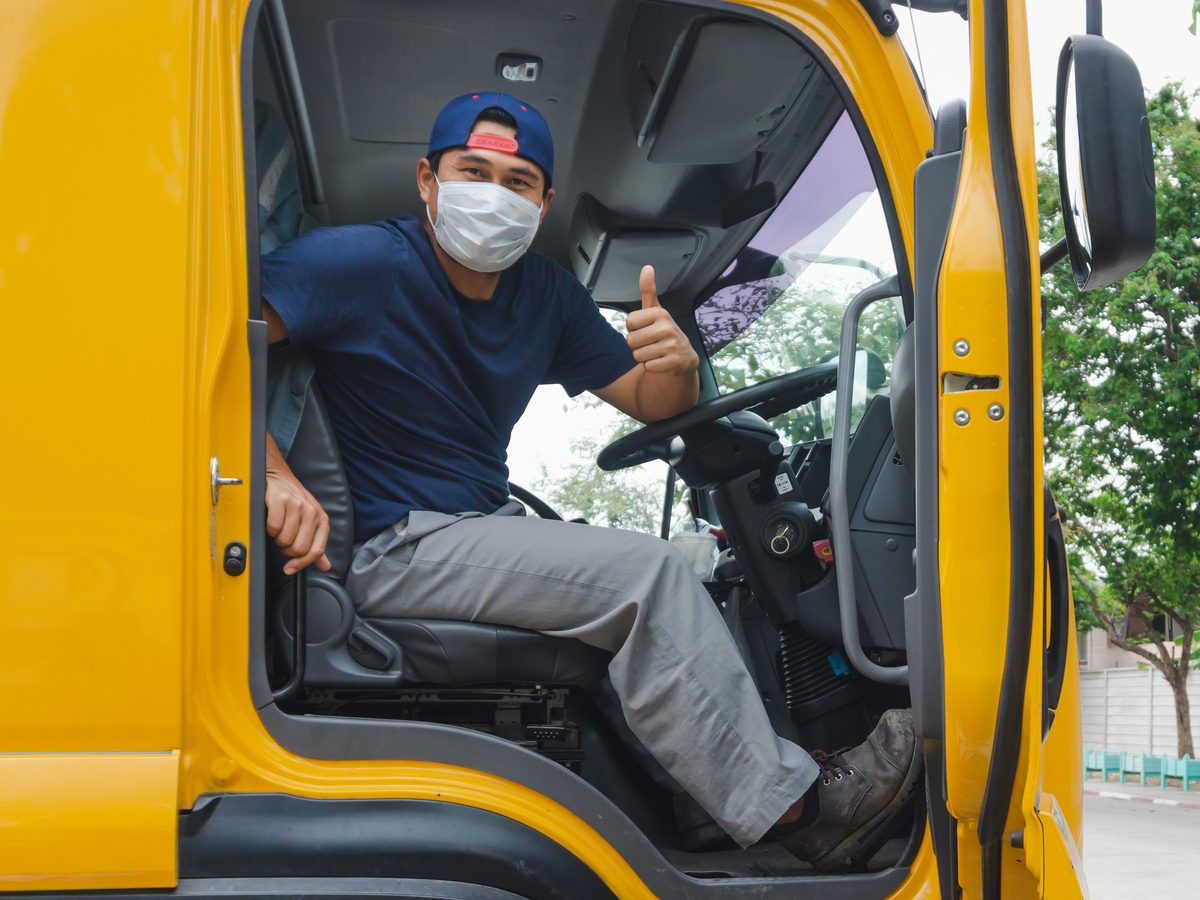
Best pit stop
The pandemic meant that truck stops across Canada locked their doors, leaving drivers with nowhere to freshen up after a long haul on the road. Min Lee, the manager of the Morris Stampede Inn, near Winnipeg, decided to fill the gap, offering drivers his empty rooms for a quick shower and rest break, plus on-site laundry. A couple dozen thankful truckers have since stopped in. His generous act inspired motels and hotels across the country to do the same. “These drivers were risking their lives to provide the rest of us with supplies,” says Lee. “We wanted to support them.”
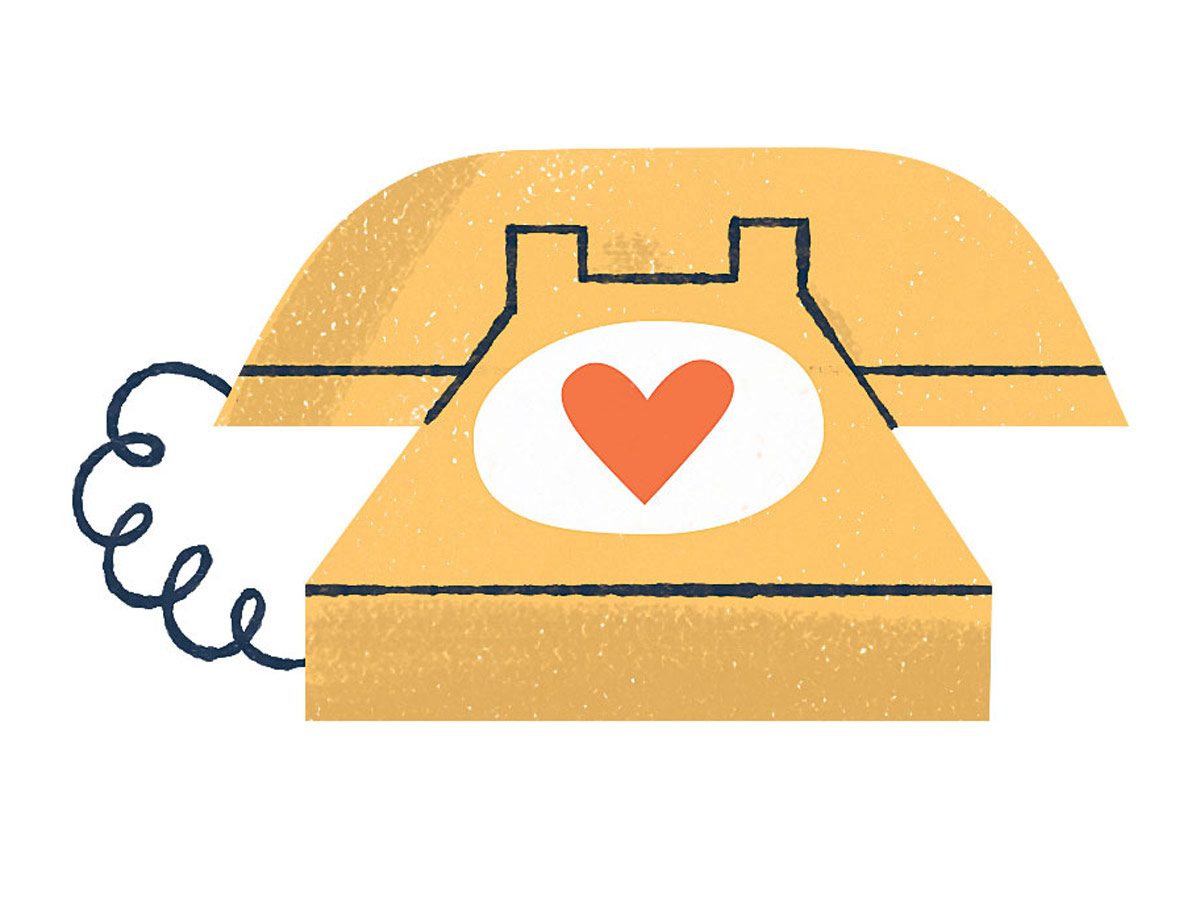
Best sympathetic ear
When COVID-19 struck, psychotherapist Karen Dougherty quickly realized that Toronto could become an epicentre—and that its front-line workers might benefit from access to free therapy. She put out a call through her own social media channels and received responses from three people who would prove essential to the operation, including a childhood friend, an admin whiz she hadn’t seen in 40 years.
With their help, the group’s website, Ontario COVID-19 Therapists, was operational within two hours. Two days later, 450 therapists had volunteered to help (that number has since grown to 900). “There was so much anxiety about what was to come,” Dougherty says. “We call it pre-TSD—the anticipation of trauma.”
The service is available for free to medical and long-term care workers treating COVID patients, as well as to shelter workers. Each front-line worker who asks for help is given two referrals to on-call therapists. At its peak, in April, the group received between 50 and 100 calls a day. Some hospital workers discussed their fears over not having enough PPE. Many long-term care workers were struggling with a lack of support from their employers. Medical professionals agonized over choosing between self-isolation and possibly exposing their families to the virus.
Often, Dougherty says, many front-line workers have no one else they can talk to—they don’t want to scare their families or burden their friends. “I can’t fix anything for them, but I can say, ‘That’s really awful. I am here for you for as long as you need me.’”
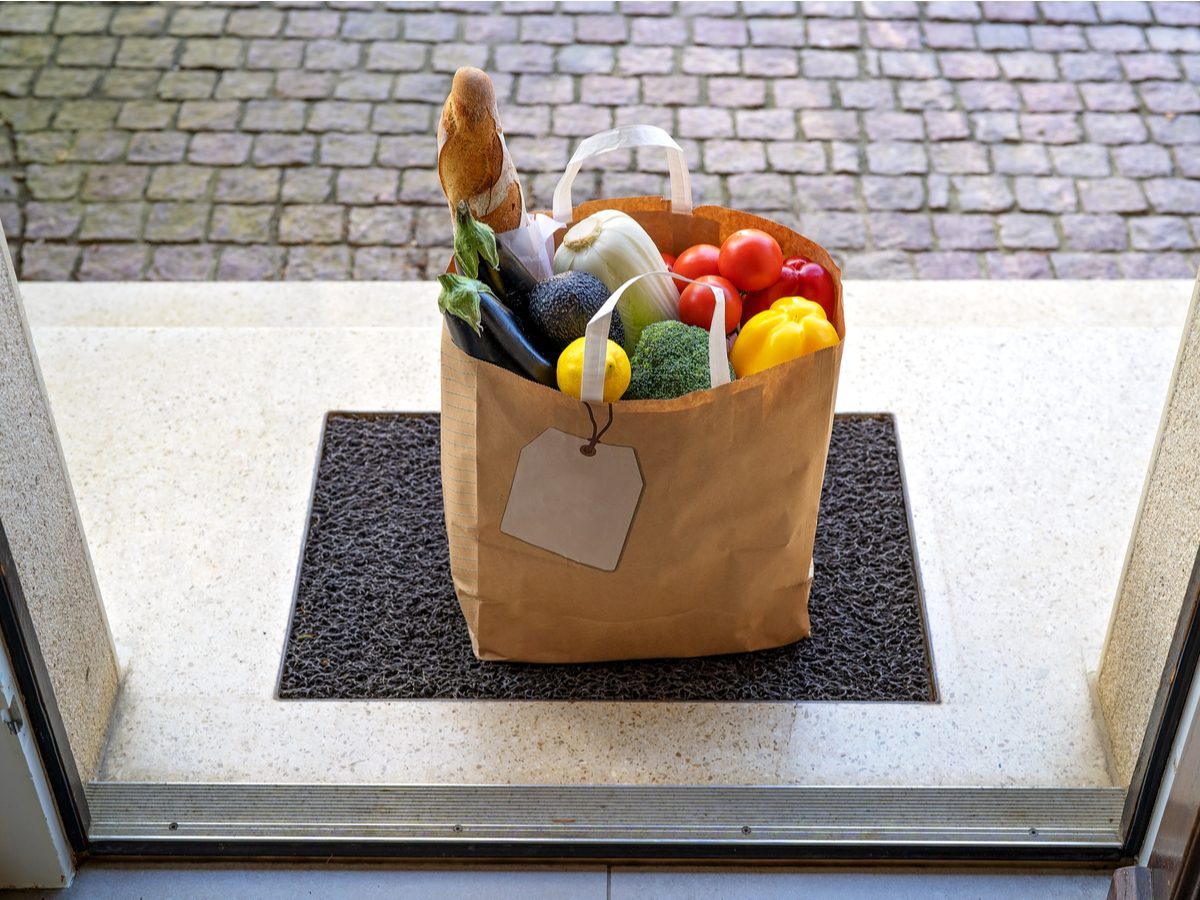
Best instant friends
In 2016, Robin Stevenson sponsored Syrian refugees Marwa Ataya and Salim Ajaj. As the couple and their four young kids settled in Victoria, B.C., Stevenson, 51, helped the family to find housing and furnish their home. They became friends, and Stevenson often shopped at the grocery store the couple opened.
Four years later, it was Stevenson who needed help. In early March, she visited Mexico with her partner and their teenage son. By the time they returned, COVID-19 was spreading rapidly. They went straight into self-isolation and didn’t have a chance to stock up on food and supplies.
Luckily, a few days into quarantine, Stevenson received a text message from Ataya: “I’m outside your house.” She opened the door to seven bags of groceries. Ataya was standing on the sidewalk. She’d delivered kitchen staples—meat, sugar, cheese, flour—as well as treats like moussaka and candy. “She and her husband are running a business and taking care of four kids,” Stevenson says, “but they took the time to care for us, too.”
To her, this is just one small example of how newcomers make Canada a kinder country. “When this pandemic ends, there will be a list of refugees hoping to come here. I hope Canadians will step up and help them get to safety.”
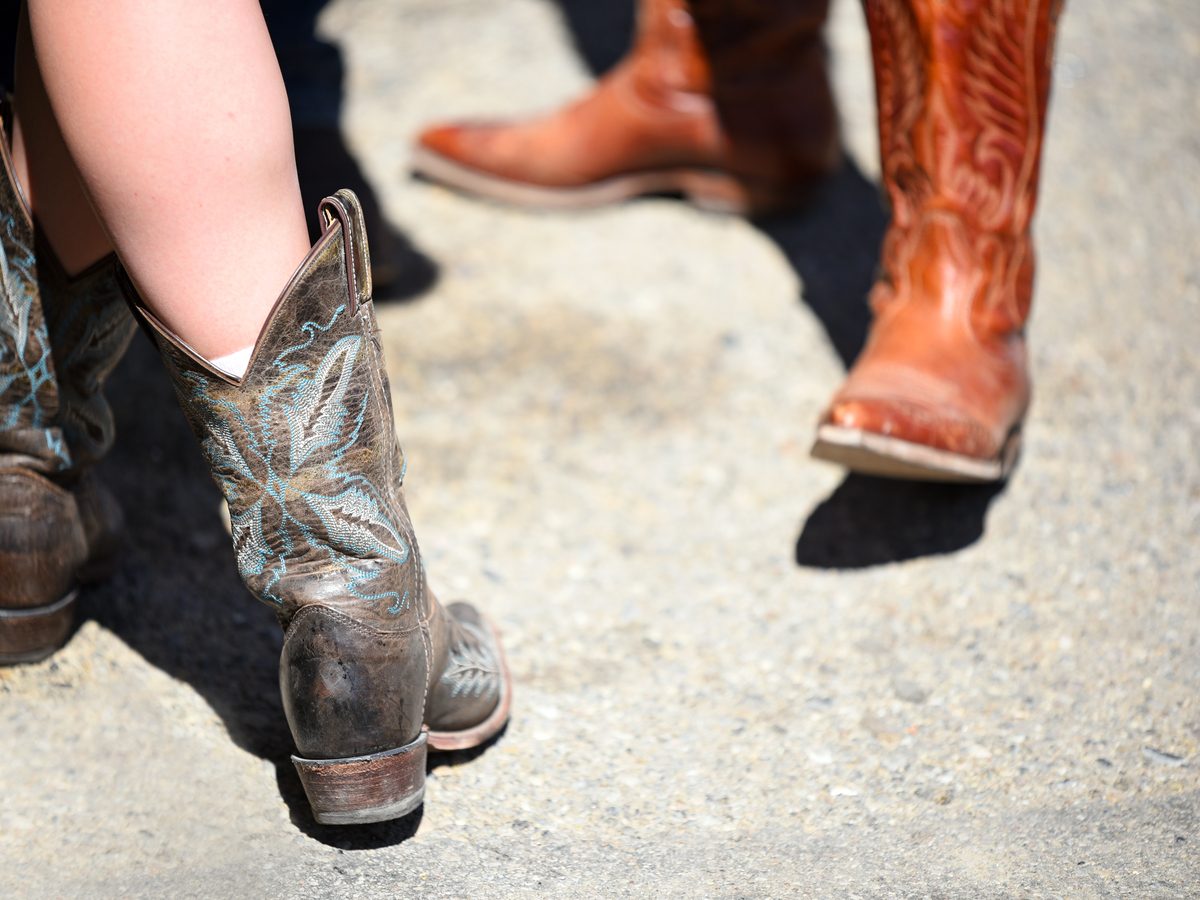
Best line-dancing session
As people entered self-isolation this spring, many streets across Canada suddenly emptied of cars and pedestrians. The startling, apocalyptic scene gave Donna McDougall, who teaches dancing at a Toronto YMCA, a novel idea: why not turn the quiet pavement in front of her house into a dance studio? Now at 3 p.m. every day, standing in the middle of the street with a Bluetooth speaker, she leads her neighbours in an hour of no-contact line dancing. It’s good exercise, a little silly and grows more popular every week.
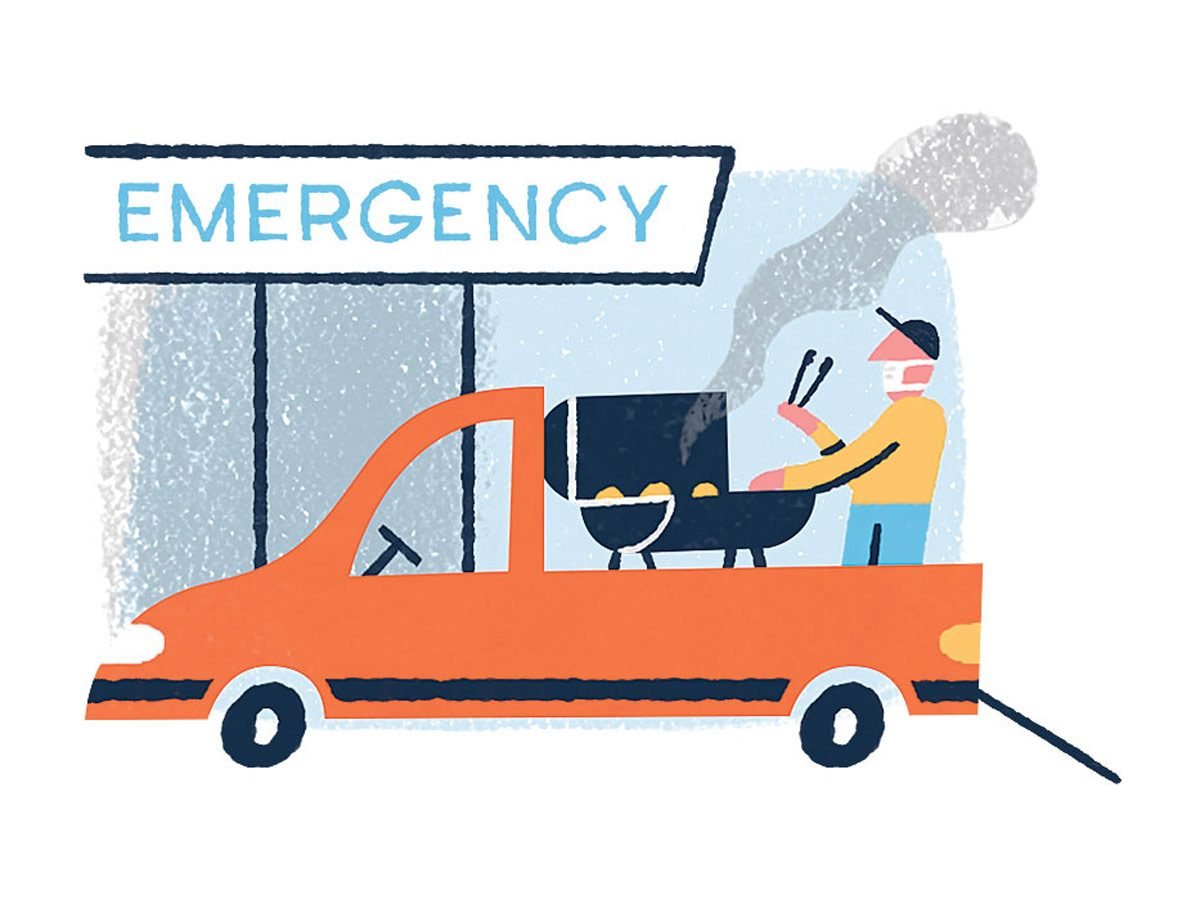
Best dinner service
Since Aaron Emery opened Old Road BBQ in Truro, N.S., last July, he’d been giving away lunches to charitable organizations around town every Friday. Then COVID-19 hit, and by mid-March, his sales had fallen by about 75 per cent. He was forced to lay off his four-person staff and shut his doors. But instead of tossing the remaining food inventory, Emery chose to deliver pulled pork sandwiches, coleslaw and brownies to emergency room staff at the local hospital. It was such a hit, he did it again—and again.
Now local companies are chipping in to cover the cost of Emery’s ingredients, takeout boxes and gas. The donations change from week to week: sometimes a business will drop off a $500 cheque; other times, a customer may bring a pile of wood to fuel Emery’s smoker. He wakes up every morning at 3 a.m. to start prepping the day’s menu. After delivering platters of pulled pork, ribs and smoked chicken wings, he’ll coordinate donations into the late evening.
So far, he’s delivered over 3,000 meals to front-line workers. He pledges to continue to do so as long as there is community support. “The core of the hospitality industry is taking care of people,” he says. “And that’s all I’m doing. When someone makes food for you, you feel taken care of.”

Best chocolate surprise
In early April, Dr. Michael Patterson, Nunavut’s chief public health officer, officially declared the Easter Bunny an essential worker. He stressed the magical rabbit’s vital work: “Specifically, the delivery of Easter chocolate, candy, and other treats to the children and young-at-heart of Nunavut.” The bunny later hopped to communities around the territory, including its oldest, Chesterfield Inlet, where kids got a break from self-isolation to hunt for bright eggs among the town’s towering snowbanks—and family members watched nearby to make sure everyone kept to a safe distance.
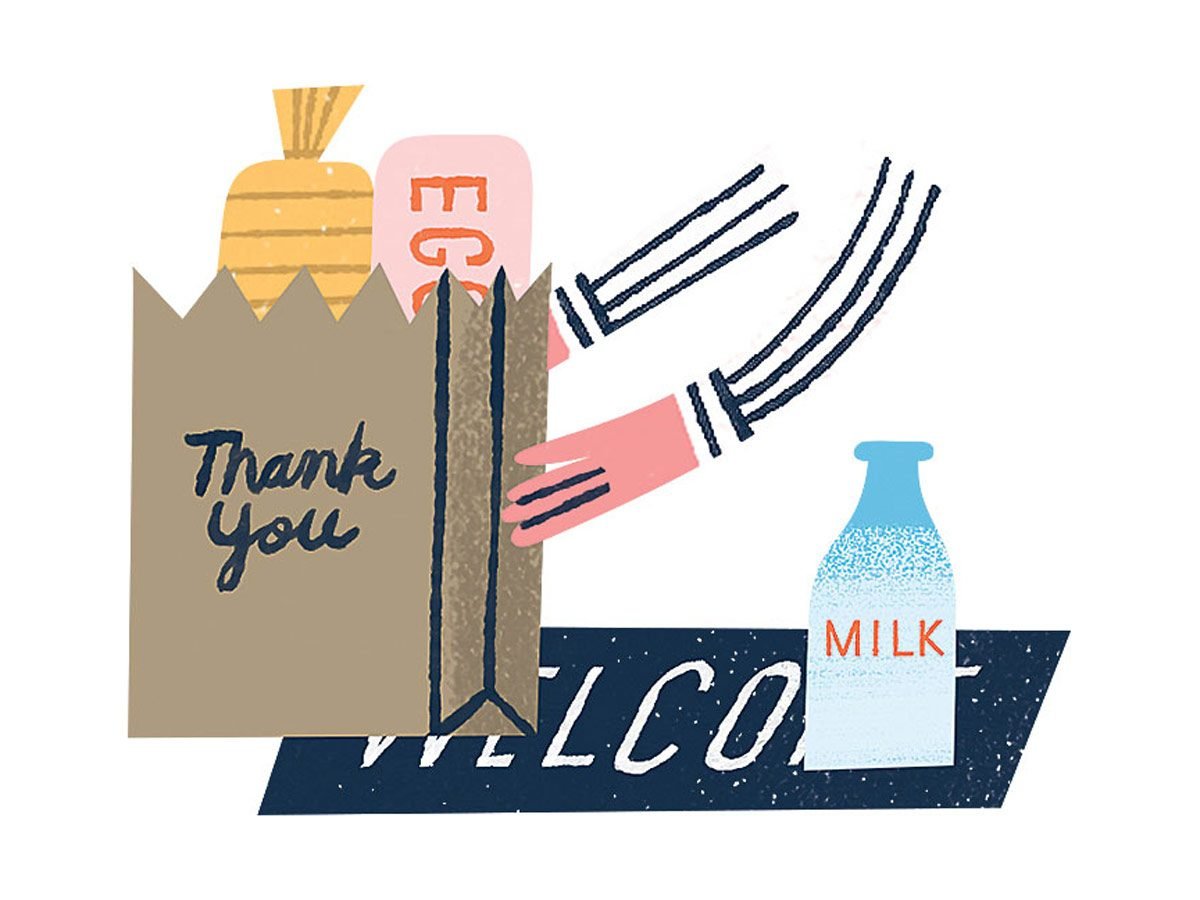
Best senior support
OpenLab, a think tank at Toronto’s University Health Network, finds creative solutions for delivering health care to vulnerable populations. The team of researchers, clinicians and designers recognized that COVID-19 meant some people would need extra help. In response, they created the Friendly Neighbour Hotline, a delivery service to help low-income seniors without support get groceries and other household items.
Within a week, the hotline had 35 volunteers taking orders from the call centre and another 450 volunteers who would go to stores, do the shopping and deliver the items to the seniors’ homes. By the end of May, the hotline had completed more than 1,250 deliveries. Some people had sought help for weeks, says Erika Kisonas, a researcher at OpenLab, and the Friendly Neighbour Hotline was the first to answer.
Kisonas has done many hotline deliveries herself and is impressed by the impact they’ve had on people’s lives. The first senior they helped insisted on having everyone over for a thank-you dinner after quarantine. Other seniors have cried. Such stories have kept Kisonas optimistic. “These are really lovely moments of connection,” she says, “between people who may never have met otherwise.”
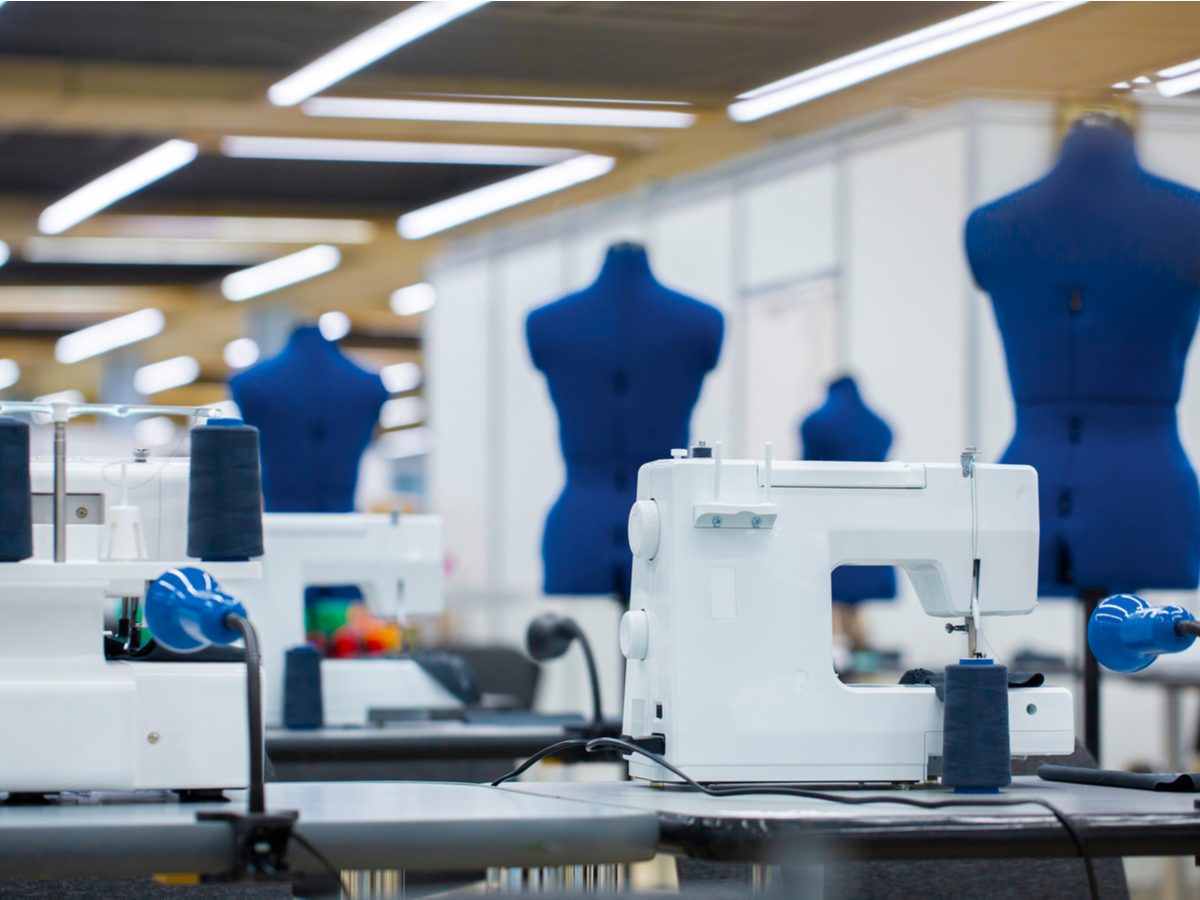
Best costume change
Eleven years ago, the owner of a shuttered fabric store donated her remaining stock to the University of Lethbridge’s drama department. It sat untouched until May 2020, when staff decided to put the fabric to good use and sew new scrubs for the city’s front-line workers. Teresa Heyburn, the program’s costume shop head, spearheaded the project, gifting new outfits to 150 employees at the Good Samaritan Park Meadows Village supportive living facility. The department plans to keep sewing, moving on to other projects, such as water bottle and catheter bags, aprons and more. “It does my heart good to see everything come full circle,” Heyburn said. “The community gives to us, and we give back to the community.”
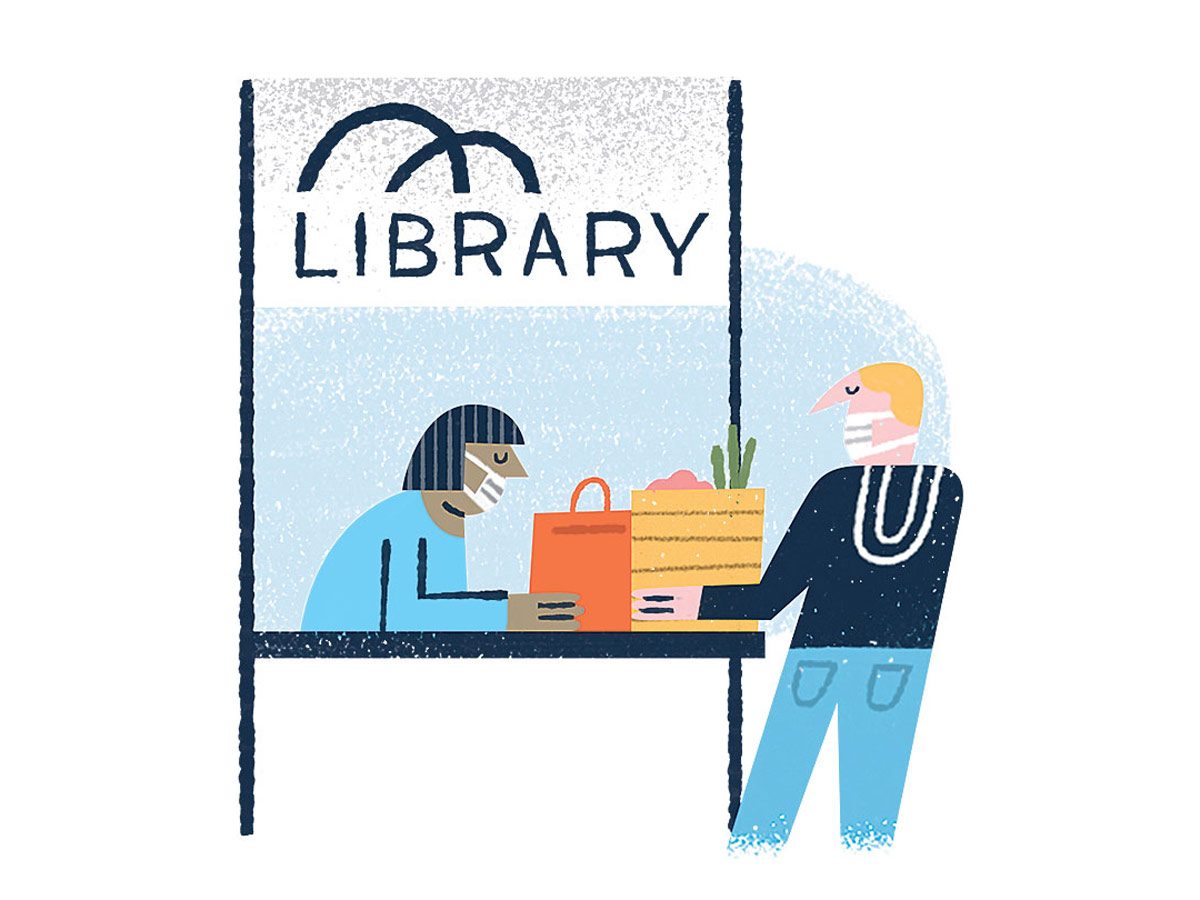
Best new mission
When more than a third of Toronto’s food banks were forced to temporarily close in mid-March, the shuttered Toronto Public Library system stepped up. In a few days, it had transformed several branches into food banks, and within six weeks, it had 13 locations up and running and had served 10,000 people. It was just in time: some Toronto food banks reported over a 50 per cent increase in visits during the pandemic.
Every day, several organizations drop off donations at the library’s distribution centre—in one of the first weeks, the organizations jointly delivered 27 skids of food. Library staff volunteers make hampers of pasta, tinned meat and canned fruit and vegetables. Another team delivers the food to the branches, where perishables like milk and fresh vegetables are added.
Although they keep a safe distance, TPL staff give a friendly wave, take a moment to ask everyone how they’re doing and stash a complimentary book in the hamper for each child. “They make it as welcoming as possible,” says Gail MacFayden, a TPL area manager. “It’s the kind of community contact people have been missing.”

Best spontaneous support system
As he watched Canada’s job losses catapult toward the one-million mark in March, 29-year-old tech sector worker Ravi Patel hatched a plan for a fundraiser to help Vancouverites who couldn’t wait for government aid. Coming Together Vancouver has since collected nearly $70,000. By April 13, it had covered expenses under $100 for over 300 individuals and families, paying for everything from household utilities to diapers. It would help about another 300. Patel credits a dedicated team of volunteers—many of them young, LGBTQ and people of colour—for the fund’s success. Other cities have since reached out to ask about modelling the Vancouver area’s generosity: “We’ve now seen communities respond like this across the world.”
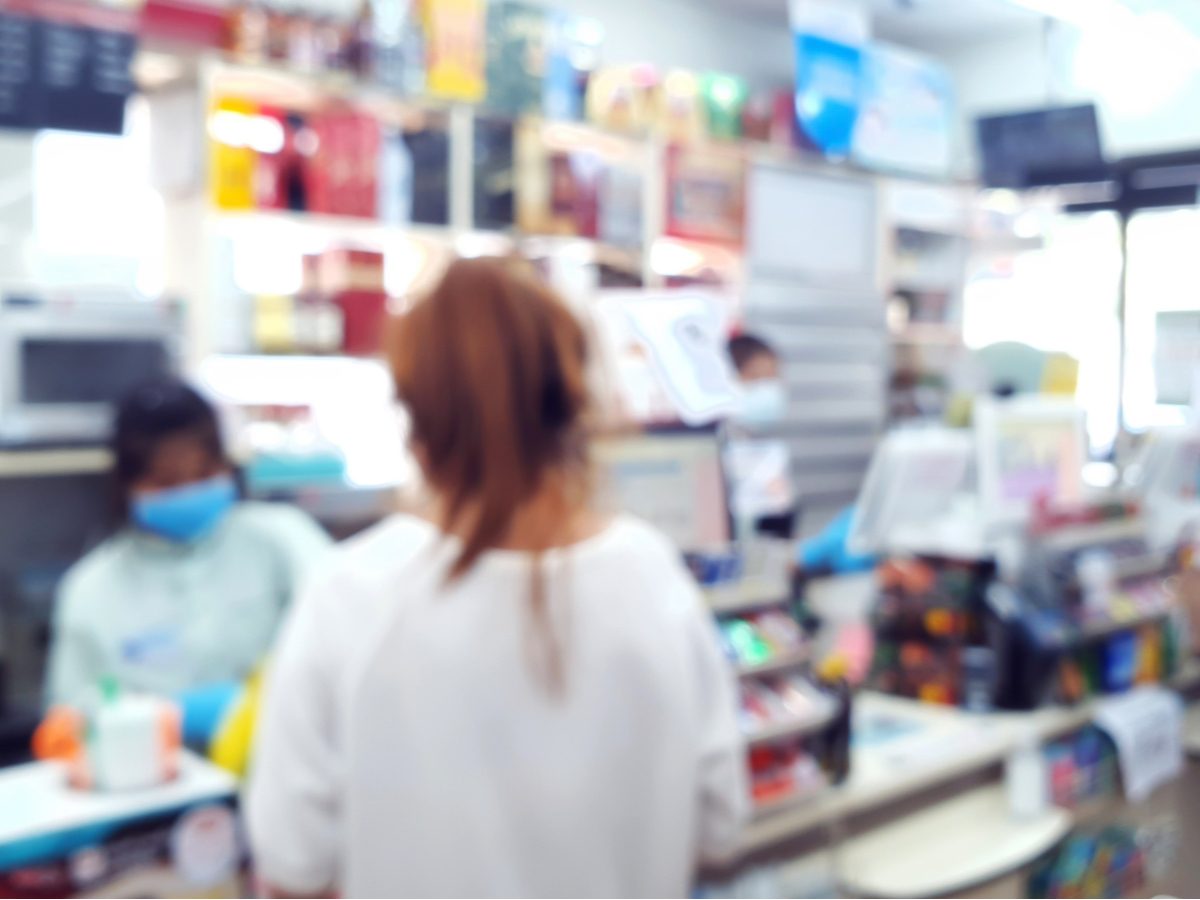
Best safety insurance
In late March, a young man walked into Joe Zhou and Melissa Gu’s Saskatoon grocery store, Ferr’s Asia Foody, and handed 20 disposable face masks to a cashier. A regular customer, he had noticed that employees didn’t have any and wanted them to have protection.
Inspired by the stranger’s kindness, Zhou and Gu, who are a married couple, decided to pay it forward. They connected with a friend in China who works at a pharmacy. With his help, they secured 5,000 disposable surgical masks to donate to their city’s front-line workers, who, like others around the country, were facing a shortage of personal protective equipment. “We hope that helps to keep people working on the front lines just a bit safer,” Gu says.
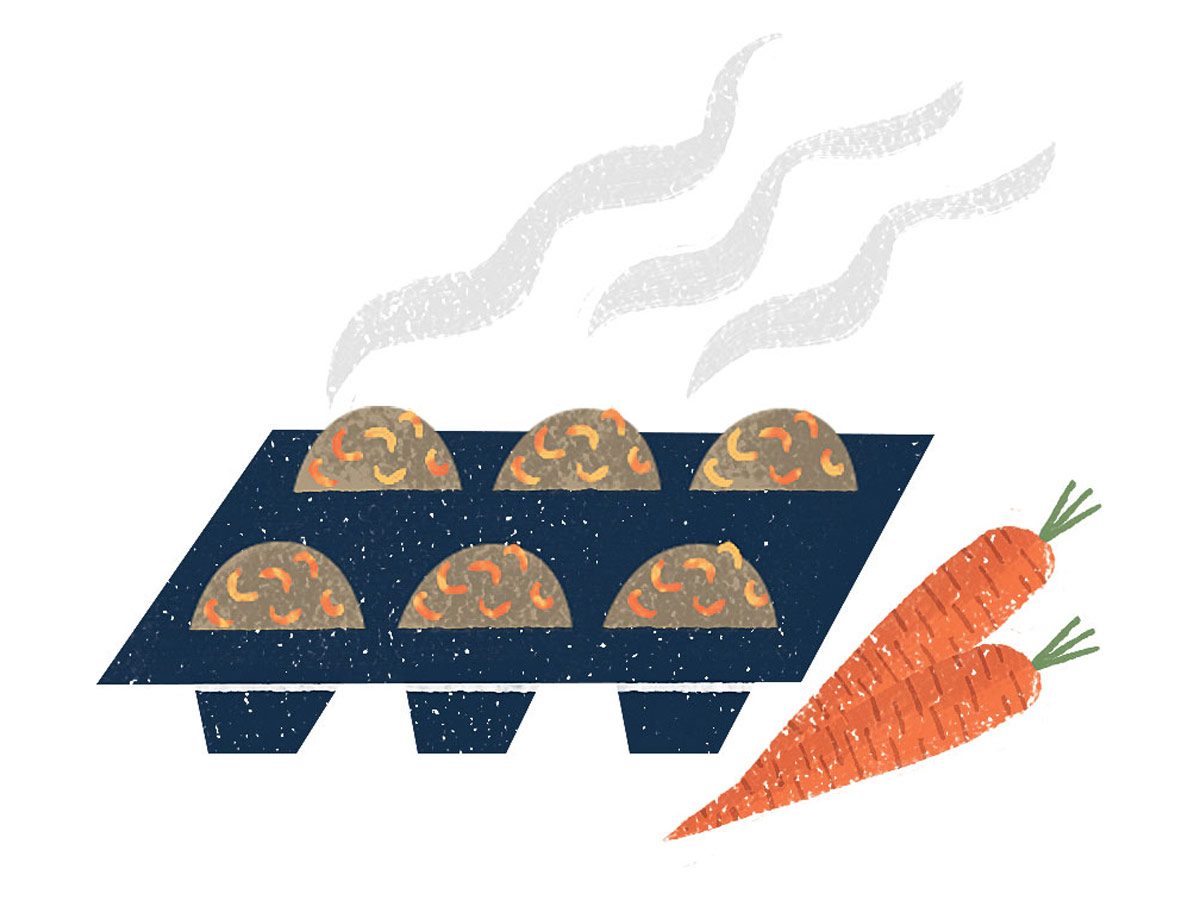
Best personal delivery
Joanne Turner has worked as a customer service representative at her local Real Canadian Superstore in Kelowna, B.C., for 23 years. But nothing could have prepared the 56-year-old for how busy her store would get in March. During one of her shifts that month, she received a panicked call from a woman 4,000 km away in Ottawa. The woman’s elderly mother needed groceries, but health conditions prevented her mom from making the trek. The woman was scrambling to find a store that delivered that day, but an overloaded system meant wait times stretched into weeks. “I could tell by her voice that she was anxious,” says Turner. She offered to make the delivery herself, and received a tearful thanks.
Turner has since volunteered to make several delivery trips for the family—in between working two jobs (the other at Dollarama) and caring for herself and her husband. When an item that her store doesn’t stock made it to the list—carrot muffins—Turner even stopped at another store. She says she’s happy to help, crediting her motherly instincts—she adds, laughing, that she packed lunches for her oldest son until he was 24. “If everyone just took on one senior to help right now,” she says, “it would make a big difference.”
Next, read about how Caremongering Toronto co-founder Mita Hans sparked a worldwide movement to be kind.